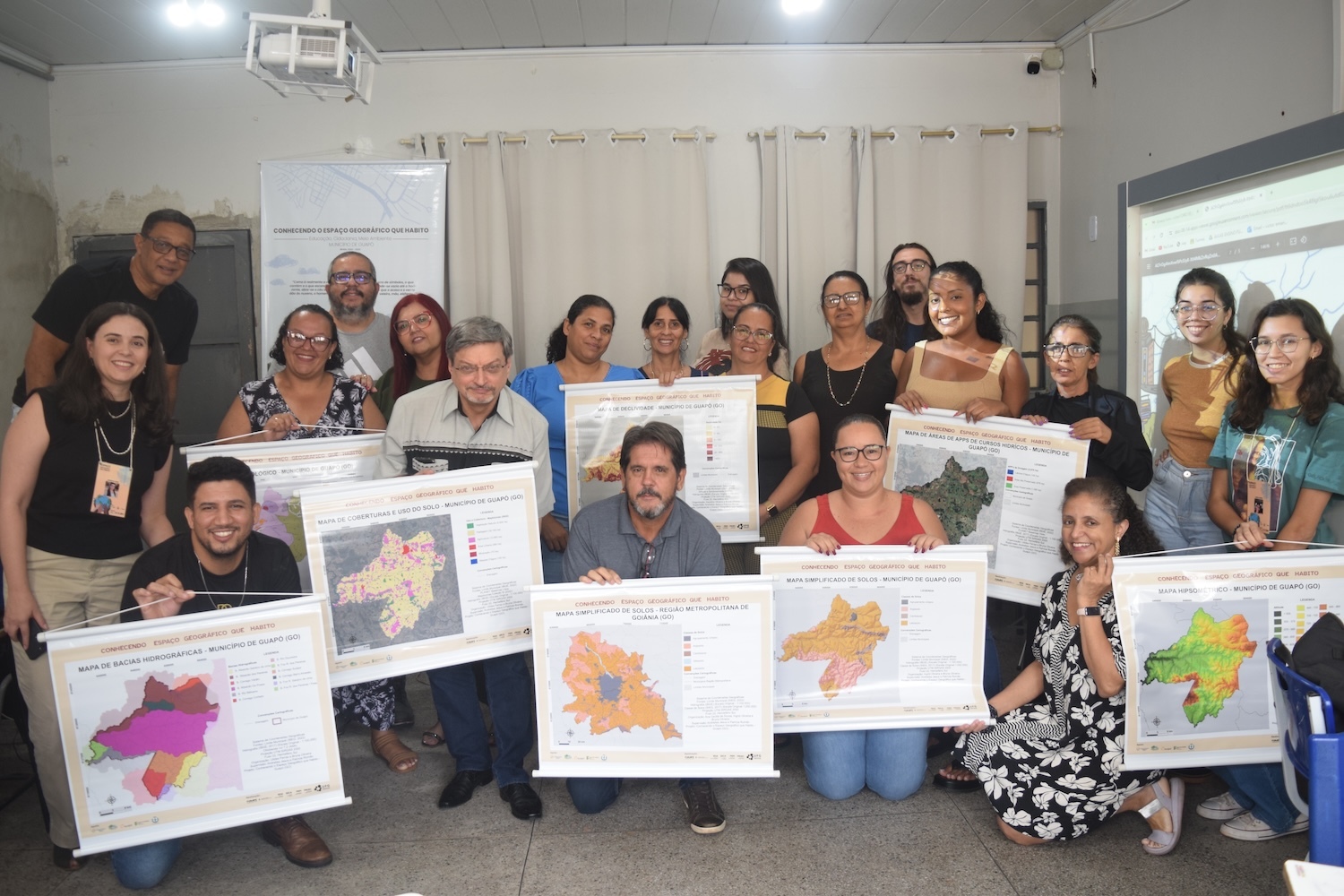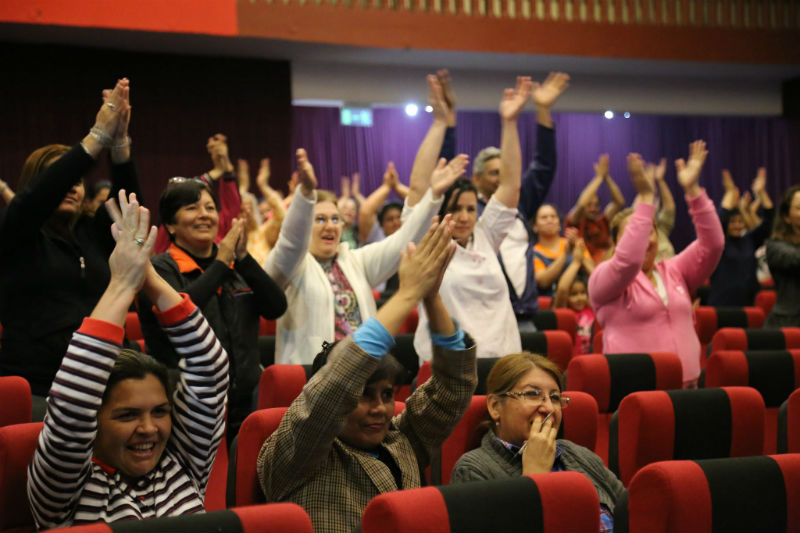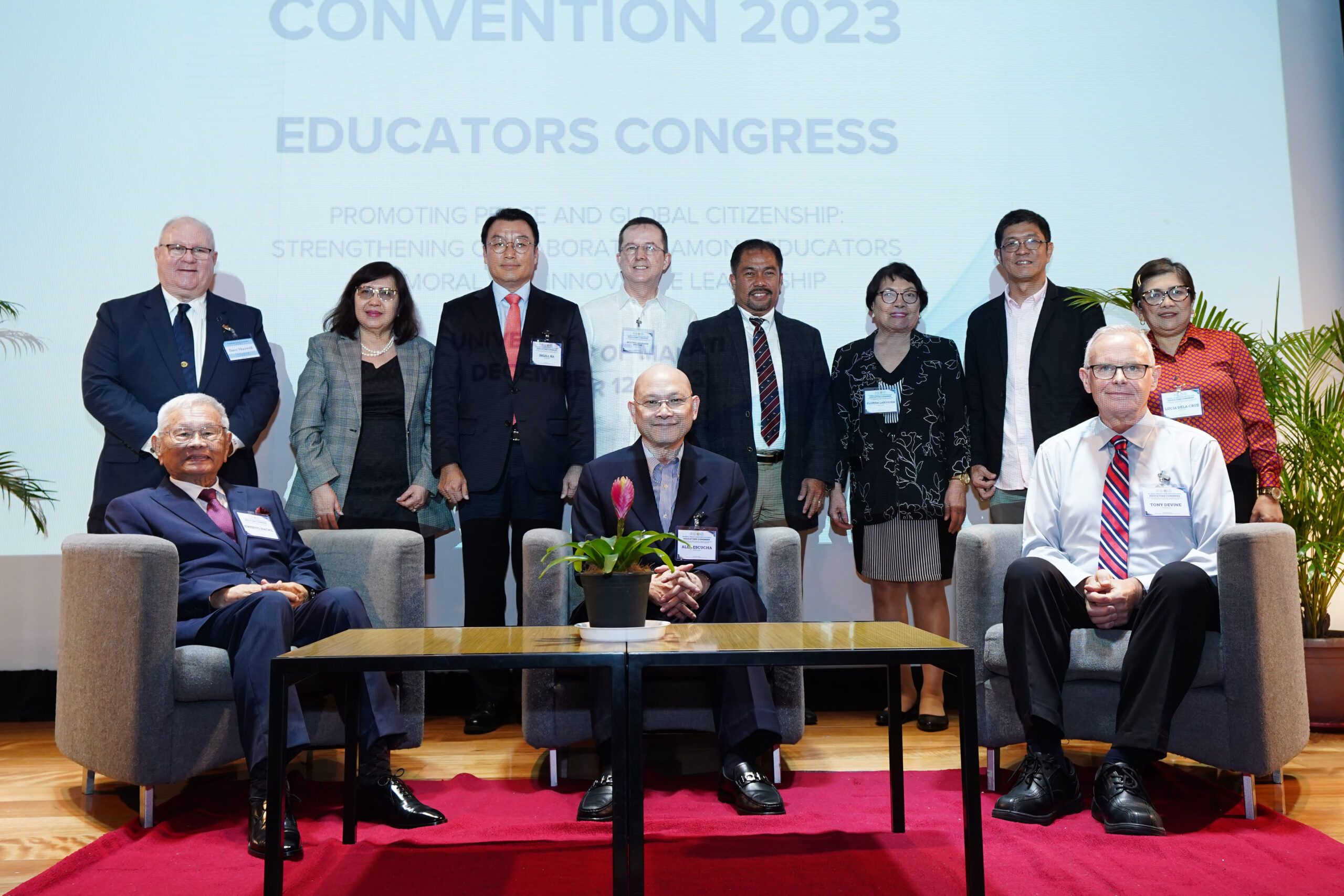by Soulaya Lestary
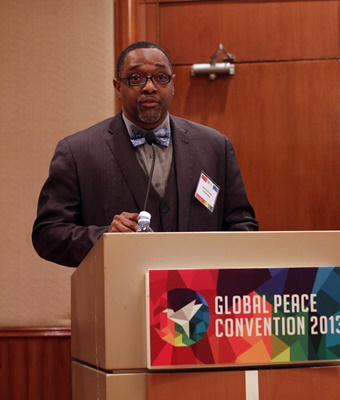
Kenneth Braswell, director of Fathers Incorporated, speaks at the forum “Globalization and the Impact on the Family.” He said that if we don’t talk equally about the contribution of both men and women to the nurturing and upbringing of our children, the concept of family cannot work properly.
“We now live in a borderless world where developments in the external environment can immediately impact the personal lives of families,” said Anjli Doshi Gandhi, deputy director general of Malaysia’s Ministry of Women, Family and Community, at a forum, “How Globalization Impacts the Family,” in Kuala Lumpur on December 6, 2013. “The big challenge today is how to sustain and maintain a healthy family institution,” Ms. Gandhi said, adding that, although globalization brings advantages towards families, it creates risks and conflicts as well.
Panelists on the family forum were among some 130 presenters on themes of interfaith cooperation, education, service and entrepreneurship and community development at the 2013 Global Peace Convention in Malaysia.
The complexity of modern living has changed people’s perception towards marriage and family, the deputy director general said, as more families are becoming “touch and go” due to workplace demands and lack of time spent together. She described efforts by the Malaysian government to enhance interpersonal and vocational skills and balance economic and social development so that families are able to cope with the stresses of modern life and be resilient.
“We have counseling programs and services that work hand in hand with NGOs to assist women in the workforce and to provide a support system for families,” Ms. Gandhi told the forum. She said Malaysia has explicitly endorsed a National Family Policy in 2011 with a focus on ensuring that program services and policy procedures prioritize the family and are accessible to everybody.
Fundamental social unit
Panelists affirmed that the family provides the basic needs of a person, including shelter, care, education, health, and other types of welfare. The family is the fundamental social unit and when the family is under stress and its members do not receive any support, the impact is felt across the community.
The complexity of modern living has changed people’s perception towards marriage and family, as more families are becoming “touch and go” due to workplace demands and lack of time spent together.
Ramesh Chandra Rai, the head of Political Science Department at Bhagalpur University in India, argued that moral values should be taught in schools. He emphasized the importance of social justice and the role of the university in transmitting “ancient systems, simple living, high thinking, and traditional values.” By implementing these concepts into the society he said, “a happy family, community, and world can be established.”
Kenneth Braswell, director of Fathers Incorporated, added that “if we don’t talk equally about the contribution of both men and women to the nurturing and upbringing of our children, the concept of family cannot work properly.”
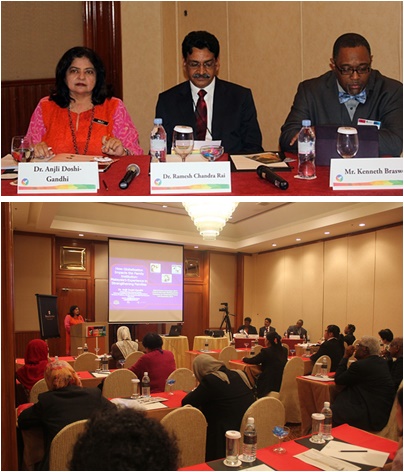
Panelists address challenges to the family and strategies for supporting families and modern life.
In the USA, Mr. Braswell said, “some 24.8 million children wake up without their biological father in the home, and 73 percent of African American children (43 percent overall) are born into single-parent households, with adolescence ending for many [in this community] in prison or in the grave.”
Mr. Braswell said that the International Fatherhood Alliance network has helped to “assess the impact of fatherlessness, create a repository of global fatherhood research and resources, provide capacity building for international organizations and governments seeking engage in responsible fatherhood initiatives, promote and educate on the important of strengthening families through healthy and responsible fathers, and create tools for international fatherhood programs.”
Fathers Incorporated has also done Environmental Community Preservation work in Panama to expand its goals around the world. Mr. Braswell affirmed that the environment has a more complex definition than land and water, and includes family, work, and health. A healthy environment must include all constituent parts to be sustainable, he said.
The 2013 Global Peace Convention, “Unity in Diversity: Building Social Cohesion through Universal Aspirations, Principles and Values,” drew more than 1,200 participants from 40 nations.
Soulaya Lestary is a student in the English Studies Program the University of Indonesia and a Former Delegate of United States Indonesia Partnership Program.

